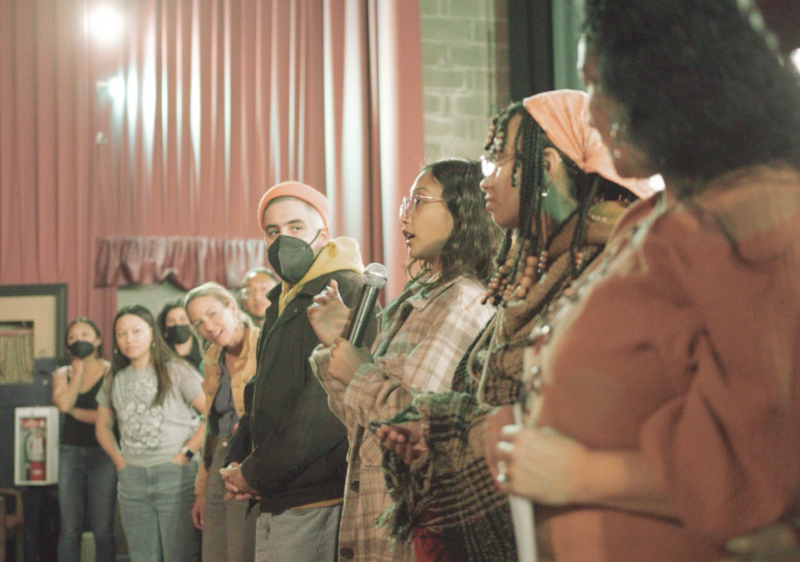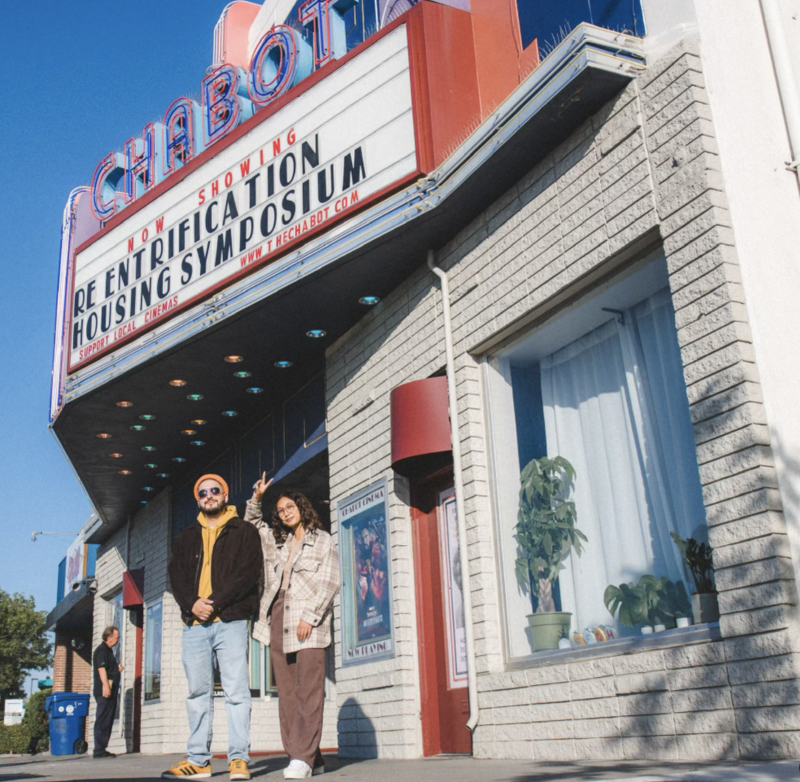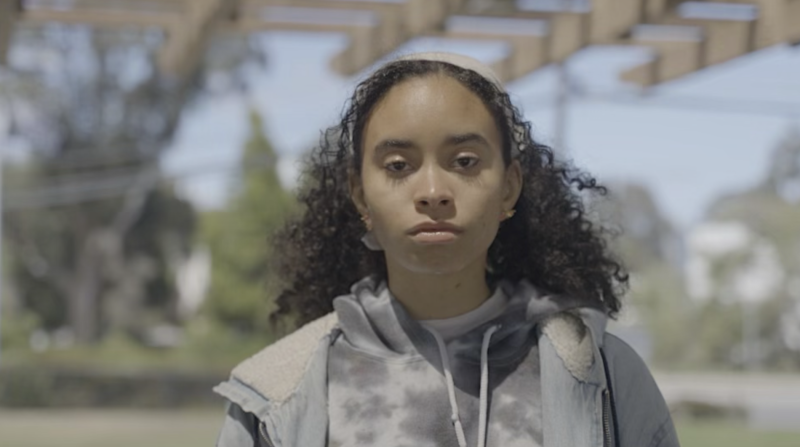Right now, we’re all thinking about the cost of living. The groceries and the gas. The sun-eclipsing luxury apartments and the people living without shelter in their shadows. Staying in the Bay and fighting for some concept of “home,” or relocating to a remote, more affordable region.
It’s a lot to hold, especially when you consider that the current housing situation is just another layer on top of a heinous history of redlining, land grabs and colonization — which needs to be addressed so we can actually change course.
This is weighty discourse, and art can open conversations to help us parse through it in community. One such work is Re-Entrification, a 65-minute documentary that turns to the people most impacted by the housing crisis to seek solutions. Helmed by director Fego Navarro and director of photography/editor Desire Lacap, the 2022 film screens March 9 in Redwood City as a part of an event organized by BraveMaker, and then it will be shown again on March 14 at the Yerba Buena Conference Room, as a part of an gathering supported by the Metropolitan Transportation Commission.

Re-Entrification features insightful interviews with people who’ve lived through evictions and periods of housing insecurity. There’s a candid interview with Jimmie Fails, the star and real-life inspiration for The Last Black Man in San Francisco, the most lauded narrative film about gentrification in the City.
The documentary also features folks who’ve overcome mental health issues and drug addictions, as well as people working on the frontlines to create change and advocate for alternative approaches to housing. One suggestion readily referenced in the film, the tiny home idea, has faced its share of criticism from housing advocates. Whether you agree with it or not, the main thing to take away is the momentum behind rethinking how we house people. That’s where we should invest our energy.




